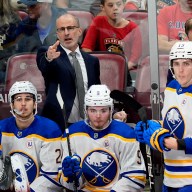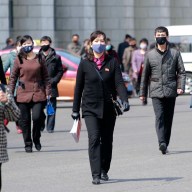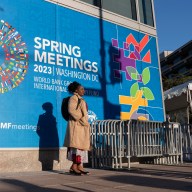OTTAWA – Brian Mulroney is in the hot seat over why, if secret payments he received from Karlheinz Schreiber were legitimate, he didn’t disclose them during questioning 13 years ago.
The former prime minister’s selective answers in a deposition for his 1996 Airbus libel suit prompted questions Thursday at the public inquiry looking into his dealings with the German-Canadian businessman.
At the time, Mulroney had accepted at least $225,000 in cash-stuffed envelopes from Schreiber, but kept the money secret. He didn’t tell his accountant about it and didn’t declare it to the tax man for six years – after news of the payments threatened to leak out.
Mulroney volunteered some information about Schreiber in the 1996 deposition, saying he had met the German-Canadian businessman “once or twice for coffee.”
But he never mentioned that he had taken cash from Schreiber. He told the inquiry that was because the lawyers who questioned him under oath didn’t ask the right questions.
That left inquiry lawyer Richard Wolson scratching his head.
“As a former prime minister of the country, knowing that you had a legitimate business relationship, you didn’t think you should say . . . I had a business relationship?” Wolson asked.
Mulroney said he was following the instructions of his lawyers: “Answer the questions truthfully. Do not volunteer information.”
He said he would have answered fully had he been asked if he had a business deal with Schreiber. He said the nine government lawyers questioning him hadn’t done their homework.
But Wolson noted that no lawyer could have asked the question because only four people knew of the deal: Mulroney, Schreiber, lobbyist Fred Doucet and an unidentified official at the German company Thyssen.
“How in the world would nine lawyers or 900 lawyers know about a commercial business relationship? You were the only one in the room who knew.”
Wolson said he could see why Mulroney might be reluctant to admit taking the money, “because it would have been like putting gasoline on a fire.”
“But I don’t understand why you can’t admit that you simply didn’t tell him for that reason, because it would have just spread like wildfire.”
“The answer is that he never asked me the question,” Mulroney replied.
He said he was in a terrible situation at the time of the Airbus accusations.
“The nine lawyers sitting there . . . out to crush me and my family . . . this was not conducive to a friendly exchange of information or compromise.
“I was fighting for my life and the honour of my family.”
Mulroney said he was prepared to answer all questions and that he was truthful in all his answers.
The 1996 hearing was part of a successful libel action Mulroney launched against the RCMP for accusing him of taking kickbacks while he was still in power.
Justice Jeffrey Oliphant, who leads the inquiry, also seized on the issue of Mulroney’s selective answers. He wondered about Mulroney’s recollection during the 1996 deposition of meeting Schreiber for a coffee in Montreal after leaving office.
Mulroney volunteered at the time that Schreiber had retained former Liberal cabinet minister Marc Lalonde to help promote the building of an arms plant in east Montreal. But he didn’t mention his own business relationship with Schreiber, who gave him at least $75,000 in cash during that meeting.
“Here you volunteer without having been asked that Mr. Schreiber had retained Mr. Lalonde … you didn’t say anything about your retainer,” Oliphant said.
Mulroney’s mood seemed to shift with the tide of Wolson’s cross-examination, at times smiling – the affable elder statesman – and at others tight-lipped and serious.
The inquiry is examining the so-called Bear Head project, in which Mulroney received the $225,000 – or more – from Schreiber to promote a plan by the German firm Thyssen AG to build armoured military vehicles in Canada.
On Wednesday, Mulroney testified that he abided by federal tax law. He said he treated the $225,000 – received in cash-filled envelopes in three instalments between August 1993 and December 1994 – as a retainer for future services.
That meant he didn’t have to report it immediately and could defer the taxes until later.
Schreiber maintains his payments to Mulroney in 1993-94 totalled $300,000. He also says Mulroney was supposed to lobby Canadian officials on Bear Head, something that could have put him in breach of the federal ethics code.
Mulroney says his promotional efforts were confined to foreign leaders, in the hope of lining up support for use of Thyssen vehicles in UN peacekeeping operations.











